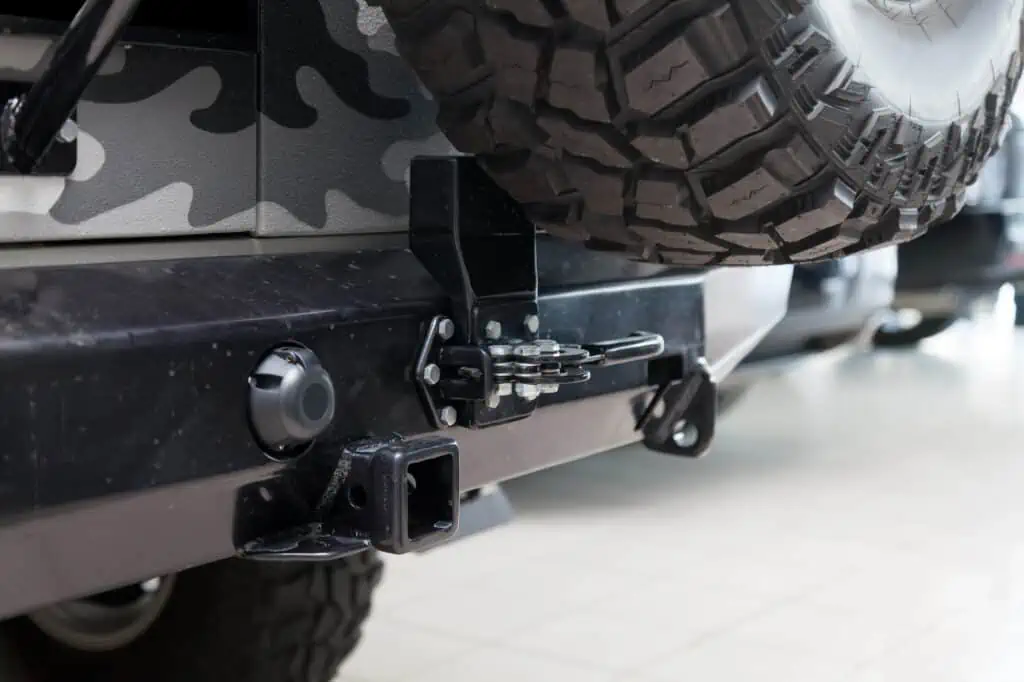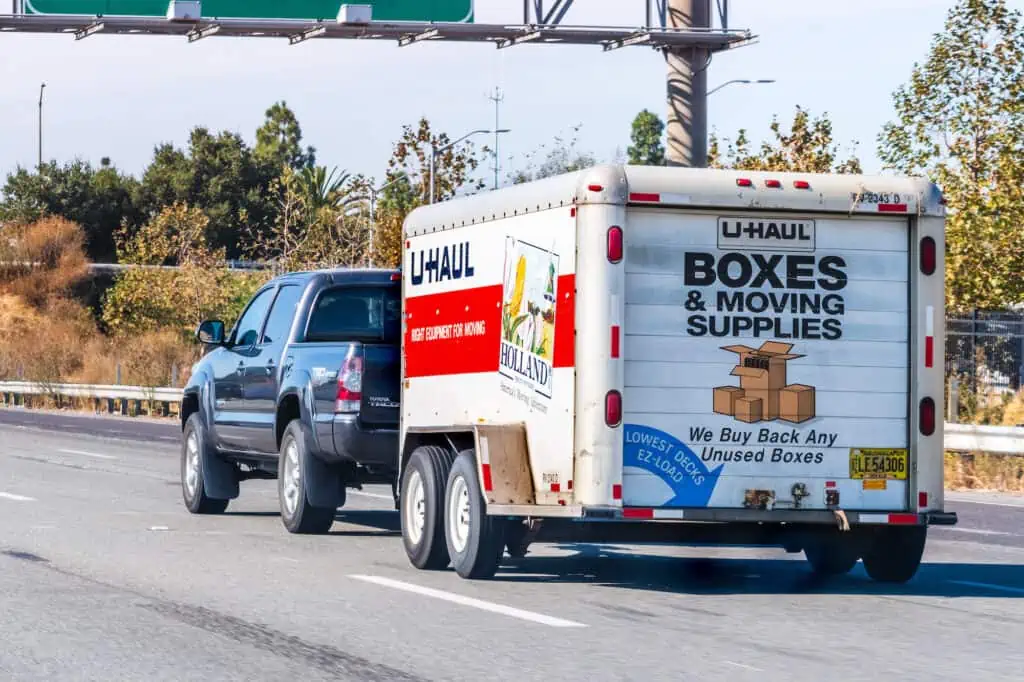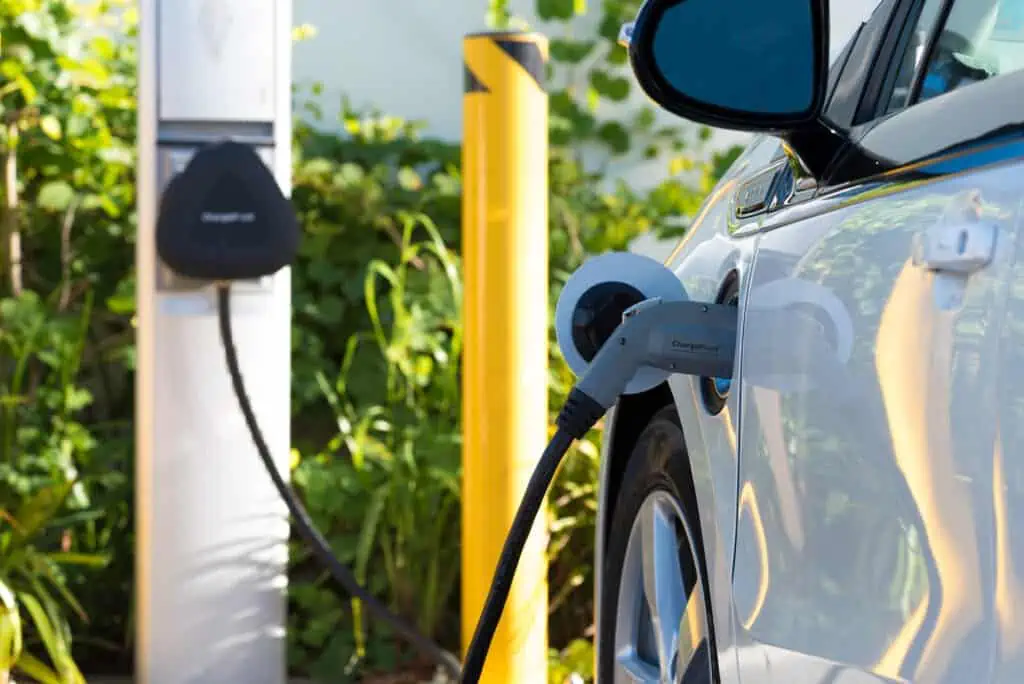Can Electric Vehicles Really Tow All Your Stuff?
Posted in: I'm Moving, Moving AdviceElectric vehicles (or EVs) are making some serious inroads into the car market here in the gas-guzzlin’ USA. According to Fortune Business Insights, the EV market is projected to grow from $28.24 billion in 2021 to a whopping $137.43 billion in 2028. Some estimates are even higher.
But are EVs for everyone? More specifically, do they have the power to pull our boats and motorbikes and trailers? Uphill? And out of state?
Read on to learn just what EVs are capable of when it comes to towing.
Do EVs come with hitches?
Yes, some do! More specifically, some EVs come equipped with a hitch receiver — the square, usually 2-inch tube attached to the rear underside of the vehicle that makes it possible for a vehicle to tow something. A hitch is what goes into the receiver and connects the trailer (or whatever else) you are towing.
Rivian trucks, certain Tesla models, SUVs from Hyundai and Kia, and a growing number of other makes and models have hitch receivers. But be aware: sometimes the same model that comes with a hitch receiver in Europe might not come with one when sold in the US. Check out the specifications for the EV you’re interested in to make sure you don’t drive that brand-new vehicle off the lot only to realize that there’s no hitch receiver back there.
Okay. But can an EV pull any real weight?
You bet! Towing capacity naturally depends on the vehicle, but when it comes to finding an EV to tow your toys, there’s no shortage of selection. Our friends over at MyEVReview list no fewer than twenty electric vehicles that can pull at least 2500 kilograms — that’s 5500 pounds, or a full two and a half tons. At the top of the list is Tesla’s Cybertruck Tri motor, which can pull 6350 kilograms – a whopping 14,000 pounds!
“…the EV market is projected to grow from $28.24 billion in 2021 to a whopping $137.43 billion in 2028.”
So towing your boat, jet skis, or motorcycles around is a breeze. And if you’re moving? A 6×12 UHaul trailer has a gross vehicle weight of 4400lbs / 2000kg, which typically breaks down to a 1700-pound trailer loaded with 2700 pounds of stuff. That’s well within the range of many EVs on the list.
But what if you just want enough power to be able to pull your landscaping or carpentry equipment from job to job, or your boat for your weekend fishing trips? Then take a look at Gear Junkie’s list of light electric SUVs that have a slightly lower towing capacity at 1500-1600 pounds, which may be enough for your professional or personal requirements.
Great! But how far will an EV tow that loaded trailer before needing a recharge?
Gear Junkie suggests an easy rule of thumb: take a vehicle’s range on a charge, and if you’re towing anywhere close to the vehicle’s capacity, cut that range in half. That should give you a fair estimate of how far you can go before you’ll want to recharge.
Gear Junkie actually says that the vehicles they test usually suffer a 30-40% decrease in range when pulling a full load, so if you’re towing a lot, you’d do well to be extra conservative estimating your EV’s towing range. Keep in mind that EV range also decreases in extreme temperatures and on trips with a lot of inclines, such as mountain roads.
You can figure out a range for your vehicle by looking at the Worldwide Harmonized Light Vehicle Test Procedure (WLTP) for these tow-ready EVs. We also highly recommend looking up where the charging stations are along your route so you don’t get stranded by the side of the road.
PRO TIP: If your EV’s manufacturer has not tested and approved your vehicle for towing, and you tow with it anyway, it could render your warranty invalid.
How easy is it to find a hitch that will fit my EV’s hitch receiver?
Likely, it’ll be a piece of cake! But first, it’s important to get an understanding of the different parts of hitches.
The tube under the rear of your vehicle is a hitch receiver. The piece of metal that goes into it and actually connects to the trailer is called a receiver hitch. Confused? Just think of it as: “I need a receiver hitch for my hitch receiver.” This is the simplest setup, and while there are other types of hitches, such as gooseneck, those are used for heavy loads beyond what most any EV is equipped to handle.
“A 6×12 UHaul trailer has a gross vehicle weight of 4400lbs / 2000kg, which typically breaks down to a 1700-pound trailer loaded with 2700 pounds of stuff. That’s well within the range of many EVs…”
So, check and make sure, but you can expect the hitch receiver on your EV to be the standard 2-inch kind found on gas-powered vehicles. If your EV is on the smaller side, it might be equipped with a 1.5-inch receiver instead, but both are very common and easy to find.
Some EV manufacturers offer hitch packages with their tow-ready vehicles. Otherwise, receiver hitches are widely available both at car part stores and online.
See prices for local moving labor. Read real customer reviews. Easily book your help online.
The first EVs were actually manufactured over 100 years ago. But only recently have they finally begun to catch on — with a promising future ahead, in popularity as well as technological advancement. If you find yourself considering an EV for your next car or truck, you’ll be in good company. And with the surprising towing power among the EVs available today, shopping for that EV is that much more exciting.








